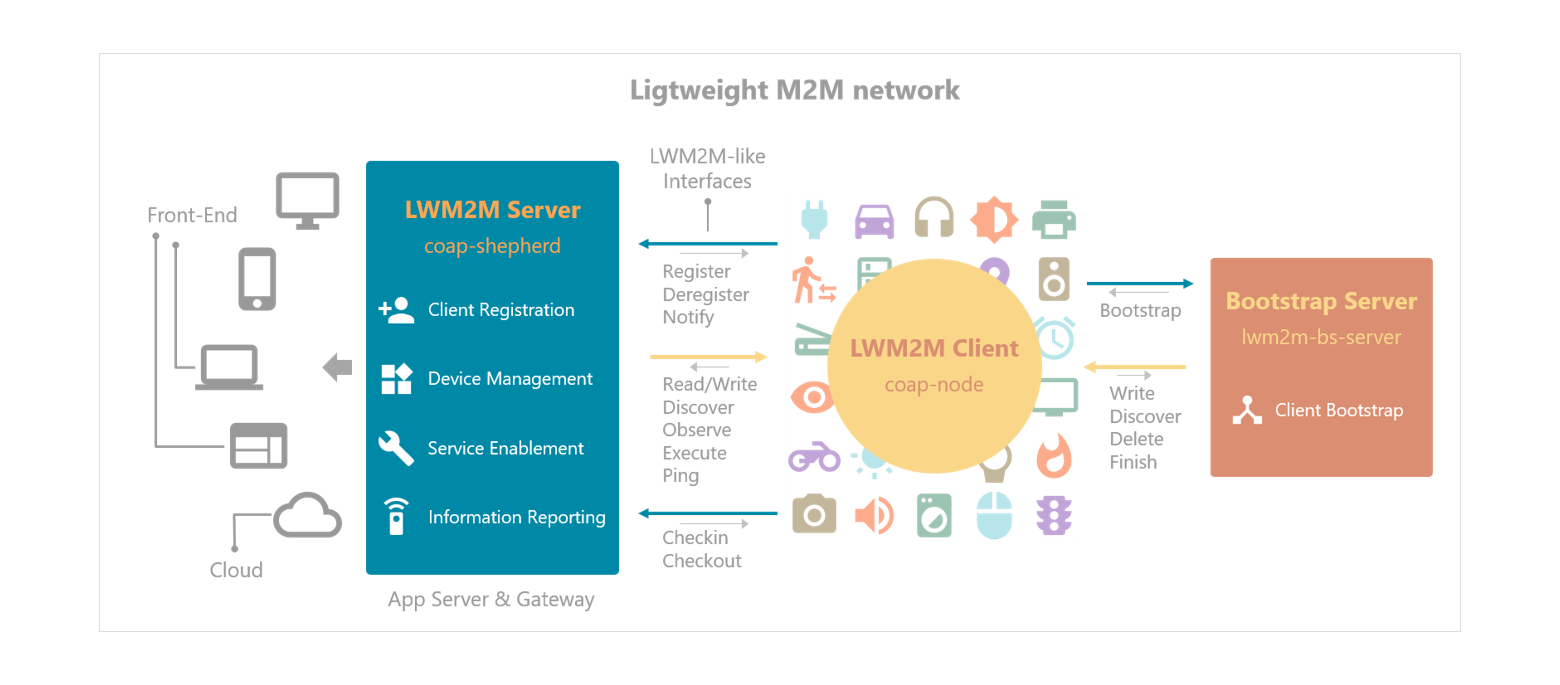Network server and manager for lightweight M2M (LWM2M).
Please visit the Wiki.
OMA Lightweight M2M (LWM2M) is a resource constrained device management protocol relies on CoAP. And CoAP is an application layer protocol that allows devices to communicate with each other RESTfully over the Internet.
coap-shepherd, coap-node and lwm2m-bs-server modules aim to provide a simple way to build and manage a LWM2M network.
- Server-side library: coap-shepherd (this module)
- Client-side library: coap-node
- Bootstrap server library: lwm2m-bs-server
- A simple demo webapp
- It is a LWM2M Server application framework running on node.js.
- It follows most parts of LWM2M specification to meet the requirements of a machine network and devices management.
- It works well with Leshan and Wakaama.
- Supports functionalities, such as permission of device joining, reading resources, writing resources, observing resources, and executing a procedure on a remote device.
- It follows IPSO data model to let you allocate and query resources on remote devices with semantic URIs in a comprehensive manner.
$ npm install coap-shepherd --save
This example shows how to start a server and allow devices to join the network within 180 seconds after the server is ready:
var cserver = require('coap-shepherd');
cserver.on('ready', function () {
console.log('Server is ready.');
// when server is ready, allow devices to join the network within 180 secs
cserver.permitJoin(180);
});
cserver.start(function (err) { // start the server
if (err)
console.log(err);
});
// That's all to start a LWM2M server.
// Now cserver is going to automatically tackle most of the network managing things.Or you can pass a config object as an argument to the CoapShepherd constructor and instance the CoapShepherd by yourself:
var CoapShepherd = require('coap-shepherd').constructor;
var cshepherd = new CoapShepherd({
connectionType: 'udp6',
port: 5500,
defaultDbPath: __dirname + '/../lib/database/myShepherd.db'
});Licensed under MIT.



